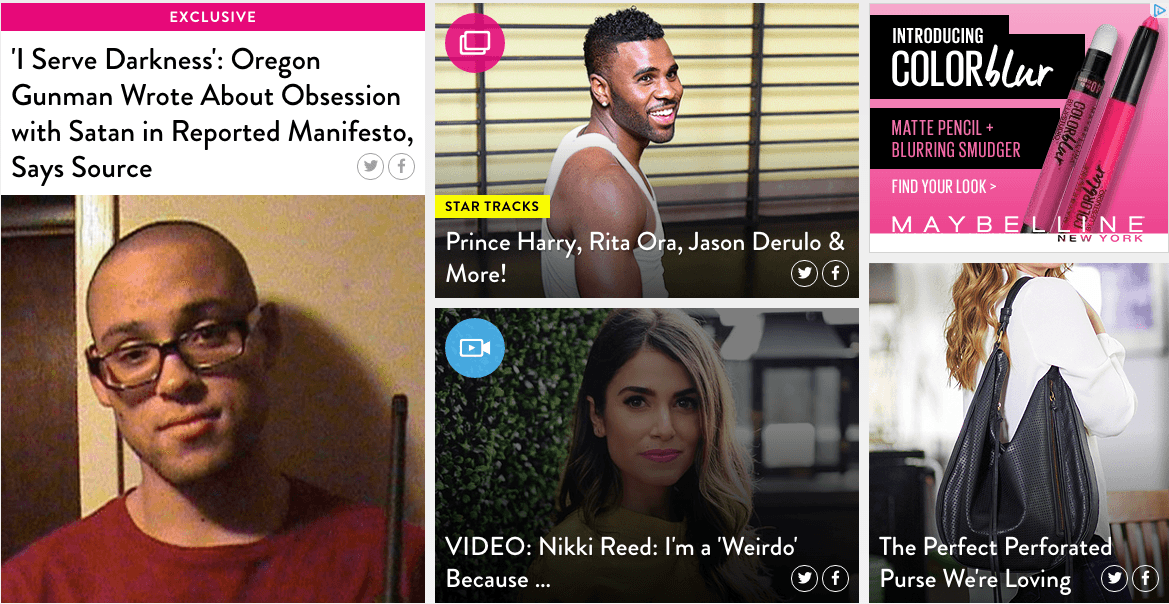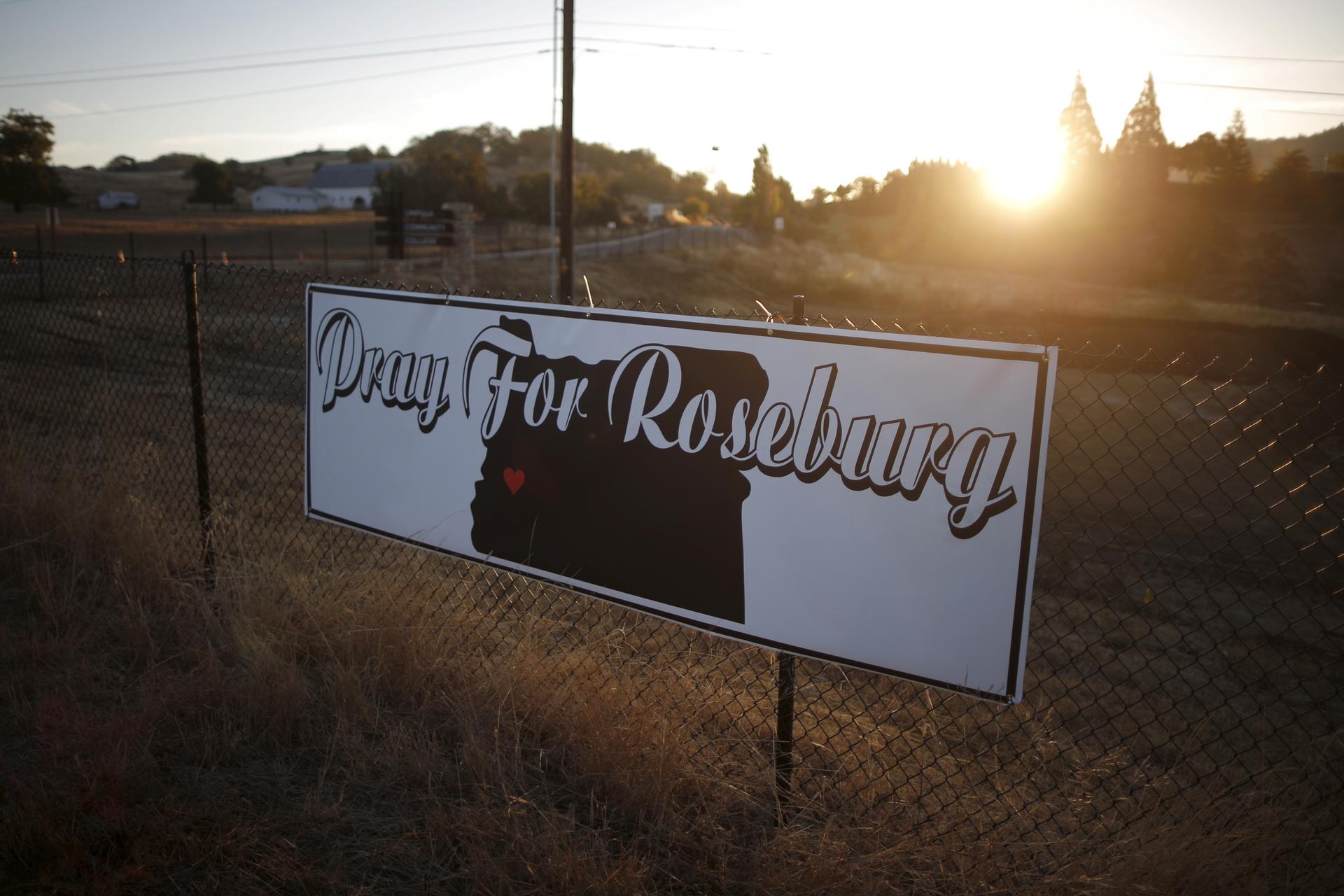Did the Oregon shooter kill nine people to get media to splash it all around the world?
A sympathy sign is seen at sunrise outside Umpqua Community College in Roseburg, Oregon, United States, October 2, 2015.
Douglas County Sheriff John Hanlin was defiant Thursday and again today — you wouldn't hear him utter the name of the gunmen believed responsible for shooting up Umpqua Community College.
He wasn't going to give him the fame that he seemed to seek.
Zeynep Tufekci, who teaches about the intersection of technology and society at the University of North Carolina, has written about how the media responds to these kind of incidents and about the need to stop inspiring copycats.
“I think there's a definite cycle of publicity seeking, troubled young men with access to guns knowing what to do and playing out almost a script. And we keep playing the script for them, which is the part I wish would change."
So how should journalists change how they cover this story so as not to encourage copycats?
Tufekci says social researchers who’ve been looking into this problem don’t recommend censoring the news, because, let’s face it, the news is of public importance. Rather it’s about reporting it differently.
“One of the things to do is, instead of splashing the killer’s face all over our screens, we should highlight the victims. I went to People.com, which is a popular website about celebrities just to see what they were doing with it, and there on the front page was his face, followed by a profile of him — right next to Ben Affleck and other famous people. I don't think we should do this. I don't think it adds anything to the story."

"We can focus on the victims and we can focus on the people who behaved heroically.”
Tufekci isn’t suggesting that the media not report the story. Rather, she says, the reporting should have a different focus and shouldn’t feature details of the methods — the types of guns, how many bullets were used, the clothes the shooter wore— because ”the concrete descriptions create a roadmap for the next person.”
Given the proliferation of guns and the lack of effective gun control measures, there will likely be more deadly incidents. ATF Special Agent in Charge Celinez Nunez said at a news conference Friday that all of the weapons — more than 12 have been recovered — were purchased legally, seven of them by the shooter or his family members in the last three years.
Media outlets don’t need to sensationalize the story, or make killers famous, says Tufekci.
“What’s gained by splashing the face of the shooter all over television? We don't need to hear their manifesto for disordered thinking. We can just be told he had a hateful manifesto, end of story. If we don't play in their own terms, I feel that we might have a chance at not inspiring the next person.”
